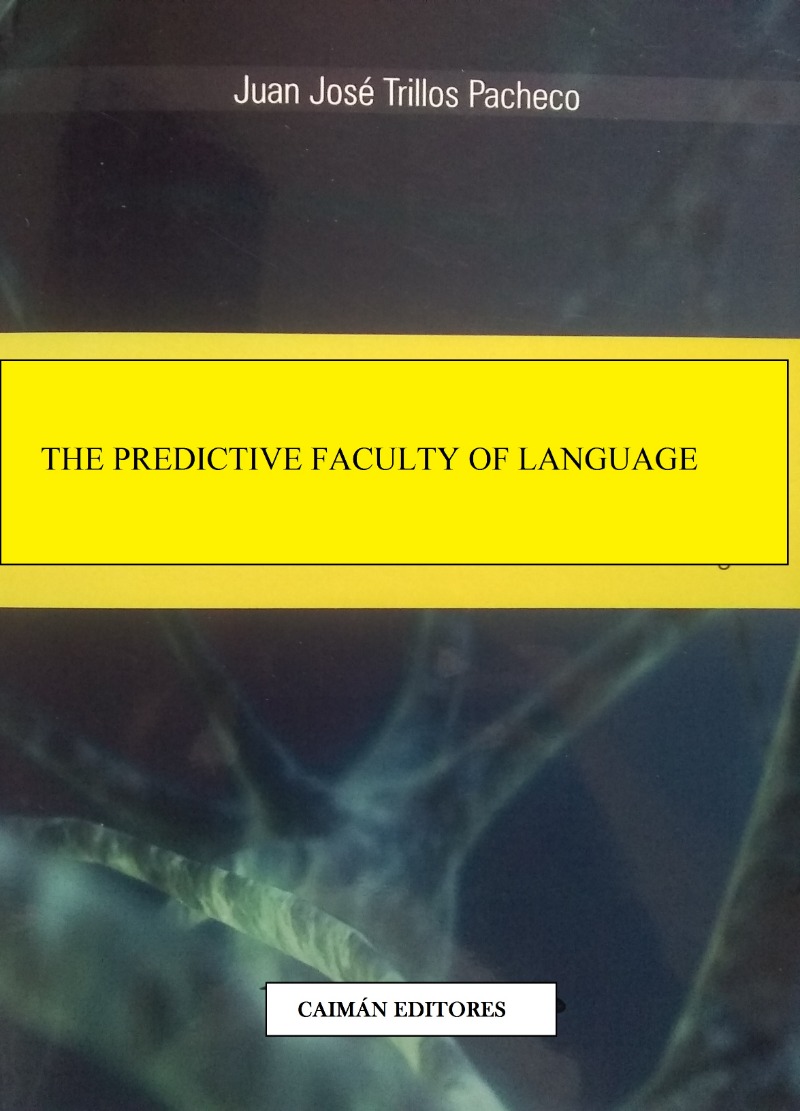
The predictive faculty of language
Philosophy of language
| Autores: | Trillos Pacheco, Juan Jose Trillos Arias, Alex Nicolas |
Materia:401 - Filosofía y teoría de las lenguas
Clasificación Thema::CBX - Lengua: historia y obras generales
Público objetivo:Enseñanza universitaria o superior
Colección:Investigación y cultura
Disponibilidad:Disponible
Estatus en catálogo:Próxima aparición
Publicado:2021-03-19
Número de edición:1
Tamaño:100Mb
Precio:$49.500
Soporte:Digital
Formato:Pdf (.pdf)
Idioma:Inglés
Libros relacionados
Las palabras del fuego - Gómez, Adriana; Gallo, Andres Felipe; Valencia Rojas, Carolina; Quiñonez, Edinson; García Pineda, Estefanía; Londoño, Felipe César; Gil, Javier; Herrán, Juan Fernando; Petit, Julien; Aguilar, Melissa; Gómez, Nicolás; Noguera, Patricia; Ángel Arenas, Rosa Ángel Arenas
Las palabras del fuego - Gómez, Adriana; Gallo, Andres Felipe; Valencia Rojas, Carolina; Quiñonez, Edinson; García Pineda, Estefanía; Londoño, Felipe César; Gil, Javier; Herrán, Juan Fernando; Petit, Julien; Aguilar, Melissa; Gómez, Nicolás; Noguera, Patricia; Ángel Arenas, Rosa Ángel Arenas
Pluriversos en la semiótica latinoamericana - Arzate Díaz, Daniel Jhovani; Polo Rojas, Néstor David; García Saavedra, Francisco D.; Pérez Morales, Flor de Liz; Fabila Echauri, Angélica María; Madrigal Castellanos, Diana del Carmen; Díaz Mesa, Jefferson Arley; Vite Tiscareño, Edgar; Castiblanco Roldán, Andrés; Puentes Parra, Angie Lucía; Moreno Mosquera, Emilce; Cataño Otálora, Mónica Marión; León O'Farrill, Israel
Shangyè yìshù fúhào xué - Lian, Peng; Lara Salcedo, Luz Marina; Urueña López, Jorge Eduardo; Huang, Chaoying; Olteanu, Alin; Ibrus, Indrek; Ojamaa, Maarja; Liu, Tingting; Peng, Jia; Fang, Tingting; Kozicki, Alec; Yang, Yuqi; Zheng, Xiaojun; He, Chaoyan; Fan, Tingting; Lee, Clarissa; Wang, Kaiwen; Castiblanco Roldán, Andrés Fernando; Bouvier, Gwen; Chen, Ariel
Reseña
This totalizing phrase of the author could be an alternative title to the current one of this book because it condenses all his thought about one of the most transcendent phenomena for the human being produced by the brain, language, and its logical social consequence, communication. I say so because this book represents a thorough investigation and reflection by Juan José Trillos in search of the holy grail of language, from time immemorial to contemporaneity, from the dialogue between the inorganic elements that gave rise to organic life, that is, to living beings, the language of Information and Communication Technologies (ICT), until culminating with the philosophy of communication.
It is a review of the history of Humanity through the evolution of living beings, including humans, in concomitance with the development of language, or vice versa, from the question of who was first between man and language. The answer lies in evolution, says the author.
It is not easy to imagine a "dialogue" between two inorganic substances from the perspective of the old conception that leads us to conclude in the wrong way that a brain is needed to originate a behavior or a language. The great creative structure of everything that exists, the Principle of Trial and Error, demonstrates something different in this regard; in fact, Nature itself has been learning from this principle as it has been created. At some point in the arrow of time two inorganic substances; -for example, hydrogen and oxygen-, were found at random and created a situation, which had two possible paths or results: they separated and nothing happened, or they stayed and promoted an exchange to see what would result. At some point, also, a new product appeared that is the sum of those two - for example, water - and that raises the possibility of producing it again if the steps and conditions that made that creation possible are repeated. At that moment there is learning, a cognition, as the neuroscientist Humberto Maturana calls it and, as he rightly affirms, it did not take a brain for that knowledge to occur.




